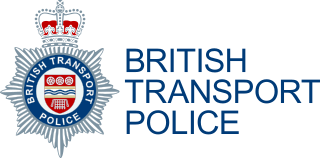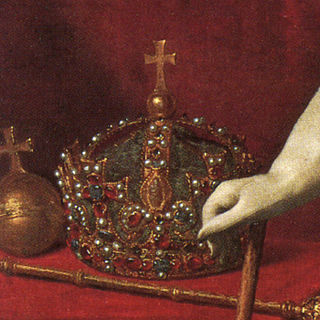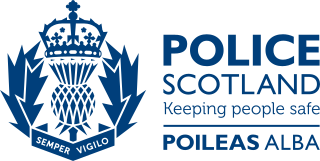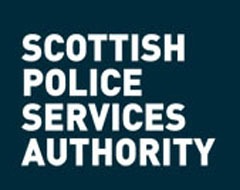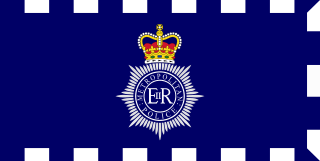
The Metropolitan Police Service (MPS), formerly and still commonly known as the Metropolitan Police and informally as the Met, is the territorial police force responsible for law enforcement in the Metropolitan Police District, which currently consists of the 32 London boroughs. The MPD does not include the "square mile" of the City of London which is policed by the much smaller City of London Police.

Law enforcement in the United Kingdom is organised separately in each of the legal systems of the United Kingdom: England and Wales, Northern Ireland and Scotland. Most law enforcement is carried out by police officers serving in regional police services within one of those jurisdictions. These regional services are complemented by UK-wide agencies, such as the National Crime Agency and the national specialist units of certain territorial police forces, such as the Specialist Operations directorate of the Metropolitan Police.
Chief Constable is the rank used by the chief police officer of every territorial police force in the United Kingdom except for the City of London Police and the Metropolitan Police, as well as the chief officers of the three 'special' national police forces, the British Transport Police, Ministry of Defence Police, and Civil Nuclear Constabulary. The title is also held by the chief officers of the principal Crown Dependency police forces, the Isle of Man Constabulary, States of Guernsey Police Service, and States of Jersey Police. The title was also held, ex officio, by the president of the Association of Chief Police Officers under the Police Reform Act 2002. It was also the title of the chief officer of the Royal Parks Constabulary until this agency was disbanded in 2004.
Most of the police forces of the United Kingdom use a standardised set of ranks, with a slight variation in the most senior ranks for the Metropolitan Police Service and City of London Police. Most of the British police ranks that exist today were chosen by Home Secretary Sir Robert Peel, the founder of the Metropolitan Police, enacted under the Metropolitan Police Act of 1829. The ranks at that time were deliberately chosen so that they did not correspond with military ranking, because of fears of a paramilitary force.
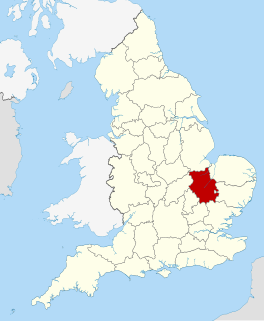
Cambridgeshire Constabulary is the territorial police force responsible for law enforcement within the ceremonial county of Cambridgeshire in the United Kingdom. In addition to the non-metropolitan county, the Police area includes the city of Peterborough, which became a unitary authority area in 1998. The Chief Constable is Nick Dean, who replaced Alec Wood in 2018. The Deputy Chief Constable (Support) is Alan Baldwin and the Assistant Chief Constable (Operations) is Nav Malik.
Chief superintendent is a senior rank in police forces, especially in those organised on the British model.
The City of Glasgow Police or Glasgow City Police was the police of the City of Glasgow, Scotland. In the 17th century, Scottish cities used to hire watchmen to guard the streets at night, augmenting a force of unpaid citizen constables. On 30 June 1800 the authorities of Glasgow successfully petitioned the British Government to pass the Glasgow Police Act establishing the City of Glasgow Police. It served Glasgow from 1800 to 1975, when it was amalgamated into Strathclyde Police. It is sometimes described as the first modern-style municipal police force, although due to the original Glasgow force's small size and varied duties this title has previously been claimed by the London Metropolitan Police. However, following formal enforcement action by the Advertising Standards Authority, the Metropolitan Police gave a written undertaking never to repeat this claim again.
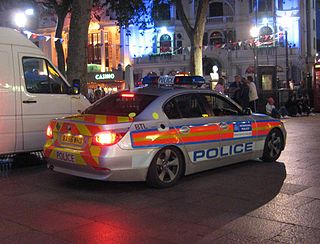
An armed response vehicle (ARV) is a type of police car operated by British law enforcement. ARVs are crewed by Authorised Firearms Officers to respond to incidents believed to involve firearms or other high-risk situations. ARVs are specially adapted and modified to accommodate specialist equipment.
Assistant chief constable (ACC) is the third highest rank in all British territorial police forces, as well as the British Transport Police, Ministry of Defence Police and Civil Nuclear Constabulary.

Dyfed–Powys Police is the territorial police force responsible for policing Carmarthenshire, Ceredigion and Pembrokeshire and the unitary authority of Powys, in Wales. The territory it covers is the largest police area in England and Wales, and the third largest in the United Kingdom, after Police Scotland and the Police Service of Northern Ireland. The force's headquarters are located in the town of Carmarthen.

Strathclyde Police was the territorial police force responsible for the Scottish council areas of Argyll and Bute, City of Glasgow, East Ayrshire, East Dunbartonshire, East Renfrewshire, Inverclyde, North Ayrshire, North Lanarkshire, Renfrewshire, South Ayrshire, South Lanarkshire and West Dunbartonshire between 1975 and 2013. The Police Authority contained members from each of these authorities.

Northamptonshire Police is the territorial police force responsible for policing the county of Northamptonshire in the East Midlands of England, in the United Kingdom.
Maria Wallis QPM was the Chief Constable of the Devon and Cornwall Constabulary in the United Kingdom from 2002 until 26 July 2006. A native of County Fermanagh, she commanded the Devon and Cornwall Constabulary which included responsibility for 3,500 police officers, more than 2,000 civilian staff and 362 police community support officers. Chief Constable Wallis commanded the largest geographical police area in England, extending 180 miles from the Dorset and Somerset borders in the east to the Isles of Scilly in the west.
Police uniforms and equipment in the United Kingdom have varied considerably from the inception of what was to become the earliest recognisable mainstream police force in the country with the Glasgow Police Act 1800 forming the City of Glasgow Police and then the Metropolitan Police Act of 1829, allowing the formation of the Metropolitan Police. With the various County Police Acts, policing became a more standardised practice in the United Kingdom throughout the late nineteenth century, the uniforms and equipment became equally standardised. From a variety of home grown uniforms, bicycles, swords and pistols the British police force evolved in look and equipment through the long coats and top hat, to the recognisable modern uniform of a white shirt, black tie, reflective jackets, body armour, and the panda car.
The Ross and Sutherland Constabulary was a Police Force in Scotland that existed between 16 May 1963 and 16 May 1975. Kenneth Ross, BL was the Chief Constable of the force for its entire existence.
Timothy John Brain was the Chief Constable of Gloucestershire from 2001 to 1 January 2010. He was previously Deputy Chief Constable from 1998.
The National Police Chiefs' Council (NPCC) is a national coordination body for law enforcement in the United Kingdom and the representative body for British police chief officers. Established on 1 April 2015, it replaced the former Association of Chief Police Officers (ACPO), following the Parker Review of the operations of ACPO.

